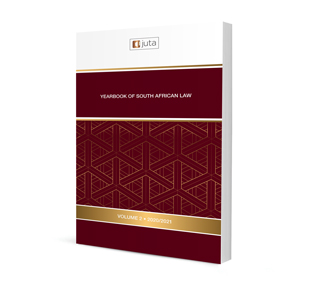Pension Law

Pension Law
Author Motseotsile Clement Marumoagae
ISBN: 978 1 48513 911 9
Affiliations: LLB LLM (Wits) LLM (NWU) PhD (UCT); Associate Professor, School of Law, University of the Witwatersrand
Source: Yearbook of South African Law, Volume 2, p. 1015 – 1051
